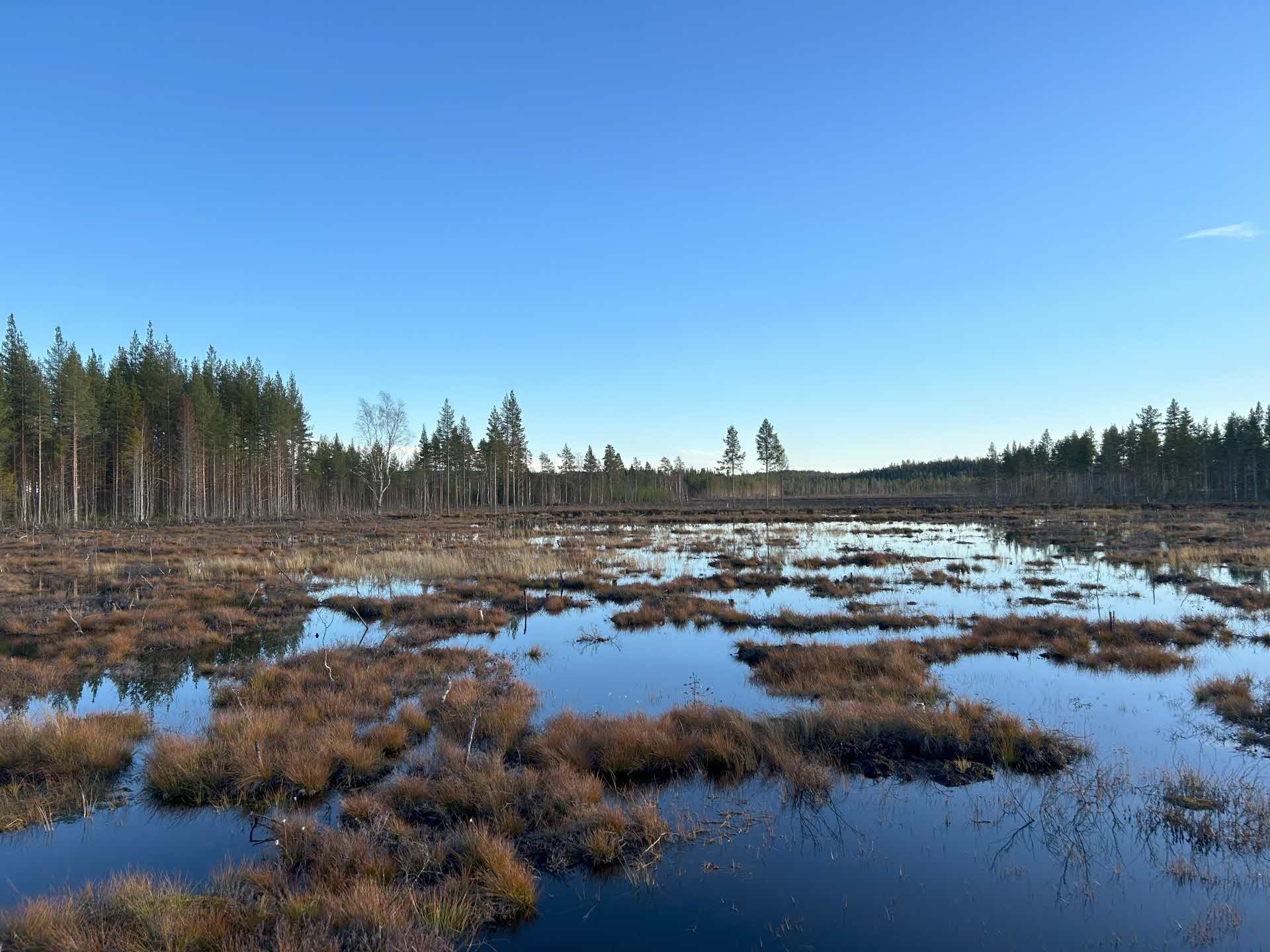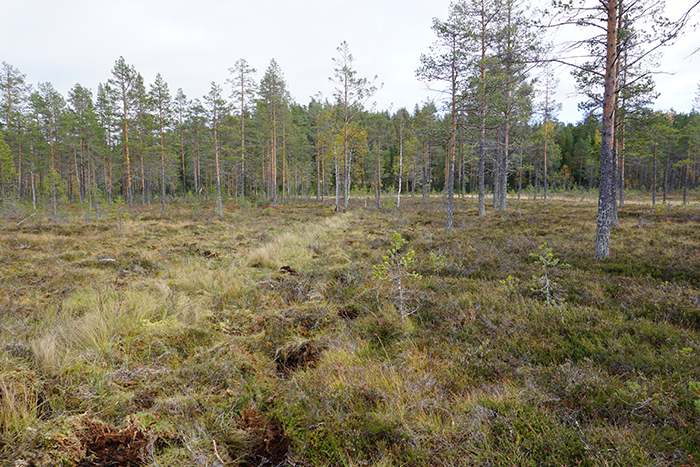
- FOREST
- SCA's FORESTS
- RESPONSIBLE FORESTRY
- PROTECTING WETLANDS AND WATERCOURSES
- REHYDRATING WETLANDS
Rehydrating wetlands
Wetlands act as nature’s own purification filters and have an important function in the landscape. SCA’s ambition is to increase our initiatives to rehydrate wetlands and benefit biodiversity, reduce greenhouse gas emissions and improve the ability of wetlands to retain water.
By restoring wetlands and refilling ditches, we can help to recreate the mire’s natural hydrology. This means the mire becomes wetter and the water remains and is purified in the wetland over a longer period. A wetland captures and binds nutrients and heavy metals from surrounding soil. In this way, the waterways get better quality and smoother flows.
Since 2021, we have rewetted wetlands on approximately 500 hectares, both by our selve and in collaboration with others. This means many miles of ditches that have been closed!
Big climate benefit

A ditched mire emits CO₂ when organic material begins to decompose in contact with oxygen, but this diminishes as the groundwater rises. In parallel, the release of methane increases, though the total climate benefit is positive from rehydrated wetlands. Rehydrating nutrient-rich wetlands offers particularly large climate benefits. Restored wetlands also attract many bird, other animals and also plants that thrives in or close to water.
During the 20th century, many wetlands and peatlands were dug up to increase forest production and create more agriculture land. It has dried up wetlands and peatlands and degraded the habitat of many species that depend on wetlands for their long-term survival. In addition, it has led to an increased release of carbon dioxide emissions when oxygen breaks down the peat, which is negative for the climate. It has also meant that the wetlands' ability to retain water in the landscape has decreased. Wetlands buffer both against drought and floods.
Increase our efforts
We have several projects in progress on SCA’s land to restore wetlands to the mires and rich fens they once were. Our goal is to both have our own projects and cooperate with others as land host.
SCA's goal for 2025 is to complete four wetland restorations on our land, either independently or in collaboration with others. However, we will likely exceed that goal. In addition to our efforts, there is significant interest, especially from authorities, in undertaking measures on our land.
All wetland restorations are considered positive for the environmental quality goals Thronging Wetlands, Living Lakes and Watercourses and Limited Climate Impact.
We shall:
- Initiate and plan to execute at least three of our own wetland restoration projects per year.
- Act as land host for various wetland restoration projects where other parties finance, plan and carry out actions.
Most of the wetland restoration projects conducted by SCA to date have received LONA grants. The local nature conservation initiative (Swedish acronym: LONA) is a government grant to stimulate long-term nature conservation engagement. Municipalities apply for LONA funding, but the projects are then initiated by local participants, such as SCA.